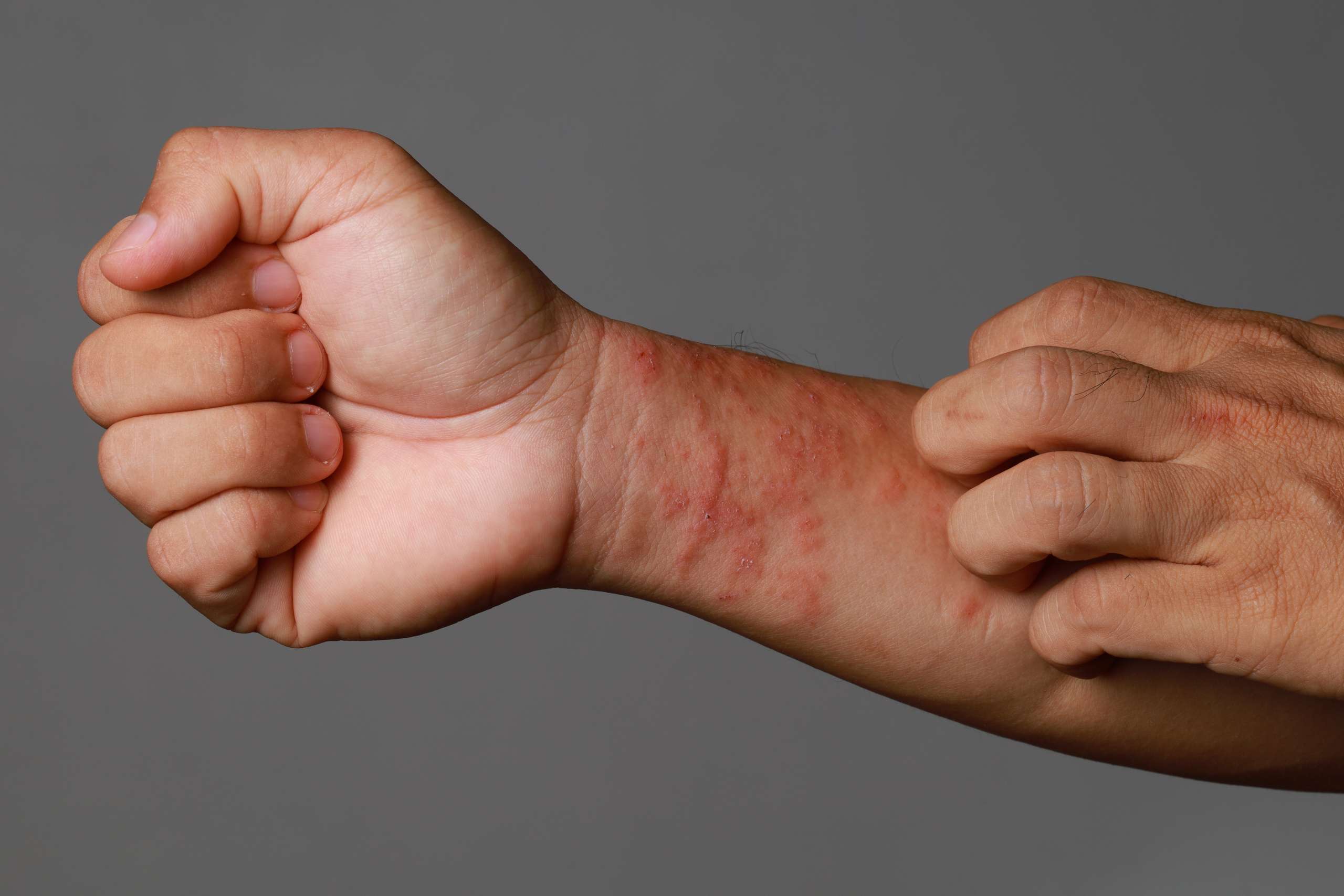At DermDox, we understand the significant impact that eczema can have on one’s quality of life, causing discomfort, itchiness, and irritation. Our specialized eczema treatment services are designed to provide relief and improve the overall well-being of our patients. Our experienced dermatologists at DermDox offer comprehensive and personalized eczema treatment plans tailored to each individual’s specific condition and triggers. Through a combination of advanced topical medications, emollients, and anti-inflammatory treatments, we aim to manage eczema symptoms effectively, reducing redness, itching, and inflammation.
In addition to medical interventions, DermDox emphasizes patient education and support. We believe that empowering our patients with knowledge about eczema triggers, proper skincare routines, and lifestyle modifications is essential in managing this chronic skin condition. Our compassionate team works closely with each patient to develop strategies that not only provide immediate relief but also foster long-term skin health. By offering specialized eczema treatment services, DermDox is committed to helping individuals regain control over their skin, promoting comfort and confidence in their daily lives.
Frequently Asked Questions
The exact cause of eczema, also known as atopic dermatitis, is not fully understood, but it is believed to result from a combination of genetic, environmental, and immune system factors. People with eczema often have a genetic predisposition to the condition, meaning it tends to run in families. Individuals with a family history of eczema, asthma, or hay fever are more likely to develop eczema themselves.
Environmental factors also play a significant role. Eczema symptoms can be triggered or exacerbated by irritants like soaps, detergents, fragrances, and certain fabrics. Allergens such as pollen, pet dander, dust mites, and certain foods can also trigger eczema flare-ups in some individuals. Additionally, changes in temperature, humidity, and exposure to harsh weather conditions can worsen eczema symptoms.
Furthermore, abnormalities in the immune system, specifically an overactive response to irritants and allergens, contribute to the inflammation and skin changes associated with eczema. This immune response leads to the characteristic redness, itching, and rash that are common symptoms of eczema.
While the exact cause may vary from person to person, managing eczema often involves identifying and avoiding triggers, using appropriate skincare products, and, in some cases, medications prescribed by a healthcare professional to reduce inflammation and relieve symptoms.
Eczema, or atopic dermatitis, is a chronic condition, meaning it does not have a permanent cure. However, its symptoms can be effectively managed, and many individuals experience periods of remission where their eczema clears up or significantly improves. Several factors contribute to easing eczema symptoms and minimizing flare-ups:
Moisturizing: Keeping the skin well-moisturized is crucial in managing eczema. Regular use of hypoallergenic moisturizers helps prevent dryness and itching, creating a protective barrier on the skin.
Avoiding Triggers: Identifying and avoiding triggers such as irritants (soaps, detergents, fragrances), allergens (pollen, pet dander, dust mites), and certain foods can prevent flare-ups. Allergen-specific testing can help pinpoint food allergies, if applicable.
Gentle Skincare: Using mild, fragrance-free soaps and detergents, and avoiding hot water during baths or showers, helps prevent skin irritation.
Topical Treatments: Dermatologists may prescribe topical corticosteroids or other anti-inflammatory creams to manage eczema symptoms during flare-ups. Non-steroidal options, like calcineurin inhibitors, are also available for certain cases.
Oral Medications: In severe cases, oral medications such as antihistamines or immunosuppressants may be prescribed to reduce inflammation and control symptoms.
Wet Wrap Therapy: This involves applying wet bandages or wraps over moisturized skin to provide intensive hydration and relieve eczema symptoms. It is typically done under medical supervision.
Phototherapy: Light therapy, conducted under medical supervision, exposes the skin to ultraviolet (UV) light to reduce inflammation and improve eczema symptoms.
Stress Management: Stress and anxiety can exacerbate eczema symptoms. Practicing relaxation techniques, such as yoga or meditation, can help manage stress levels.
While eczema may not go away permanently, proper management and adherence to a skincare routine recommended by a dermatologist can significantly improve the condition, allowing individuals to lead a comfortable and fulfilling life.
Eczema itself does not spread from scratching, but scratching affected areas can worsen the condition and lead to more severe symptoms. When you scratch eczema-prone skin, it damages the skin’s protective barrier, making it more vulnerable to irritants, allergens, and bacterial infections. Scratching can cause the eczema rash to become more inflamed, red, and itchy.
No, eczema is not a fungal infection. Eczema, also known as atopic dermatitis, is a chronic inflammatory skin condition characterized by red, itchy rashes. It is often related to an overactive immune response and a compromised skin barrier. Eczema can be triggered or exacerbated by various factors, including genetics, environmental factors, allergies, and irritants.
Fungal infections, on the other hand, are caused by fungi such as Candida or dermatophytes. These infections typically present as red, itchy, and sometimes painful rashes with distinct borders. Fungal infections are contagious and can be spread through direct or indirect contact with an infected person or surface.



